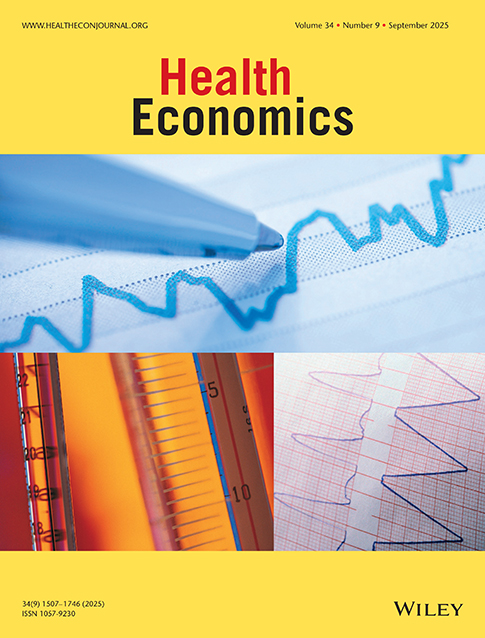Smokers' expectations to quit smoking
Abstract
We investigate the effectiveness of different smoking policies on smokers' expectations to quit smoking using a choice experiment on a sample of smokers identified within the World Health Organization (WHO) MONICA Project. Our results indicate that restricted availability, increased cigarette prices, cessation subsidies and regulations at restaurants, bars and cafés increase the expected probability of smoking cessation. Regulations at work places do not seem to have any effect. The results also show the significant role of limited self-control; smokers who have the intent to quit smoking are more likely to quit smoking if a stricter regulation is implemented. Further, smokers who have received advice from their children to quit smoking or who perceive the health risks as considerable, are more likely to expect to quit smoking. Copyright © 2004 John Wiley & Sons, Ltd.




